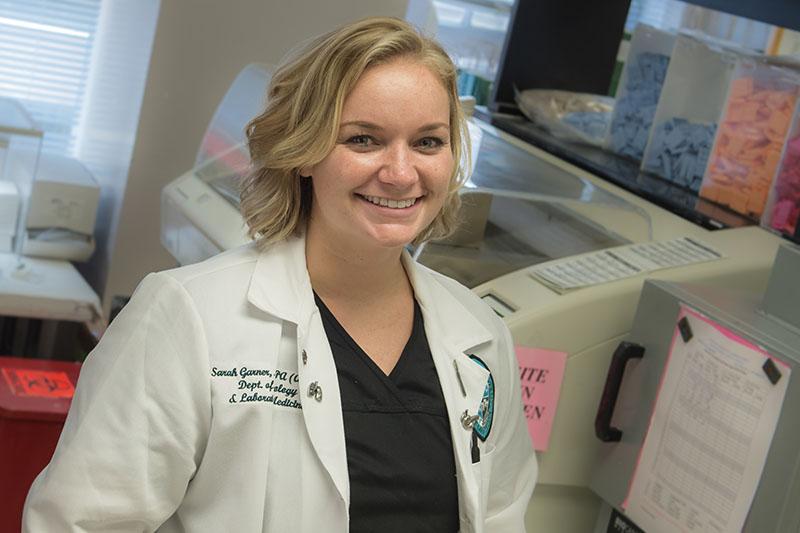Ten students join first allied health program at School of Medicine
In January, 10 students will begin training in the first cohort of Tulane School of Medicine’s first allied health program, the master’s degree as a pathologists’ assistant (PA). The program is one of 13 such programs in the United States and the only one in the Gulf South.
A pathologists’ assistant — not to be confused with a physician assistant — is a highly trained allied health professional with two years of dedicated study in anatomic pathology, including a year of clinical work.
The program is the brainchild of Sarah Garner, who graduated from Tulane with a bachelor’s and a master’s degree in cell and molecular biology and went on to earn a master’s degree as a pathologists’ assistant at Rosalind Franklin University of Medicine and Science. Garner created a new clinical rotation site at Tulane, where she completed the second year of her PA program. Then she returned to Tulane, where she works as a board-certified pathologists’ assistant in the Department of Pathology and Laboratory Medicine and trains pathology residents and fellows. Garner also teaches gross anatomy, histology, and pathology in the School of Medicine and the School of Science and Engineering.
Four years ago, during her clinical year as a PA student, Garner was inspired by the intelligence and dedication of the pathology faculty at Tulane. She started thinking about developing a PA program at Tulane because she wanted to promote the profession in the South. It became a reality this year, after about 18 months of active preparation.
Driven by her own interest in pathology and her passion for teaching, Garner developed the curriculum, with support from Byron Crawford, MD, the interim department chair. Garner recruited the applicants and began working on achieving accreditation. She plans to reach full accreditation or “serious applicant” status by the time the first students graduate in December 2021 so that all graduates are eligible to sit for the board-certification exam.
Most PAs work in surgical or autopsy pathology, but Garner widened the Tulane program to include a flexible and personalized curriculum for each student including unique rotations, an optional teaching practicum, research opportunities, and more. “In our curriculum, I built in this optional teaching practicum. I'm hoping our graduates will get academic jobs where they will teach actual classes and teach in the lab,” besides conducting regular PA work, she said. “The scope of practice of pathologists’ assistants is evolving, and I want our students to have the foundation to evolve with it. We want to create a new standard here at Tulane.”
In order to qualify for the program, a candidate needs to have a bachelor’s degree and previous pathology work experience, but must also show intent to work as a PA.
Garner said she considered candidates whose applications showed “‘I know what a PA is. I know what a PA does. And that's what I want to do for the rest of my life.’ That’s the applicant we were looking for, and most of them have been that.”
For her excellent teaching and mentoring record and because she recently authored the first of a five-volume series of textbooks, Garner earned a nomination to the American Society for Clinical Pathology’s 2019 ASCP “40 Under Forty” list.

